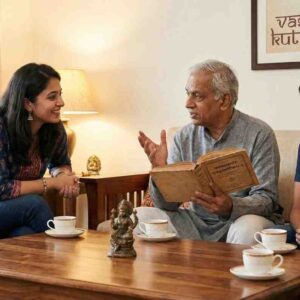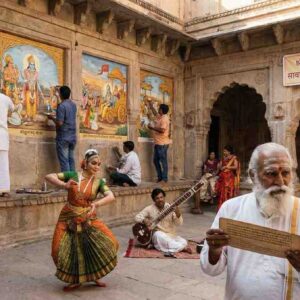Truth or Convenience? Are We Compromising Our Values for Social Acceptance and Comfort?
In a world where external appearances often trump internal convictions, the question arises:Do our actions truly reflect our beliefs, or are we living a lie?In India, a nation known for its diverse cultures, religions, and values, the tension between personal beliefs and societal expectations has become more pronounced than ever. Are we staying true to our values, or have we sacrificed authenticity for the sake of convenience and acceptance?
The Disconnect Between Belief and Action
India has a rich tradition of moral values, guided by philosophies inHinduism,Islam,Christianity, and other religions, all advocating virtues like truth, compassion, and justice. According to aPew Research Centerreport from 2023,83% of Indiansclaim that religion plays a central role in their lives. However, when it comes to daily actions, many individuals fall short of embodying these beliefs. In fact, a2022 study by the Indian Institute of Public Opinionfound that41% of Indiansadmitted to engaging in actions that directly contradicted their professed values—whether through corruption, dishonesty, or unethical behavior.
This growing disconnect is partly due to the increasing pressure of social and economic expectations, which often require compromises on personal beliefs to succeed in competitive environments. The pressure to conform to social norms can sometimes overshadow individual moral choices, leading to behavior that undermines the values we claim to hold dear.
The Influence of Social and Cultural Expectations
India’s cultural and social dynamics further exacerbate this divide. The pursuit ofmaterial successand the pressure to conform to societal standards of success have led to widespreadethical compromises. For example,economic corruptionis often seen as a necessary evil to get ahead in life. A2023 survey by Transparency International Indiafound that72% of respondentsbelieved that corruption was an inherent part of life, with many justifying unethical practices like bribery or dishonesty as the only way to thrive in a highly competitive society.
Additionally,social mediahas become a powerful tool for shaping perceptions, sometimes blurring the line between what is real and what is performed. The rise ofdigital influencersandonline personasoften reveals a stark contrast between the values they publicly endorse and the reality behind their curated lives.A 2022 study by the Centre for Media Studiesshowed that58% of Indiansbelieve that social media influencers project ideals that are unrealistic or false, highlighting a growing dissonance between public personas and authentic beliefs.
The Cost of Living a Lie
Living a life that contradicts one’s beliefs can have severe psychological consequences.Psychologistshave long pointed out that when individuals behave in ways that are inconsistent with their core values, it leads tocognitive dissonance—a state of mental discomfort that can cause stress, anxiety, and depression. According toDr. Neelam Aggarwal, a clinical psychologist, “The human mind is designed to align beliefs with actions. When this alignment breaks down, it can lead to emotional turmoil.”
Furthermore, the long-term effects of living a life of contradiction can erode trust, not only with others but also within oneself.A 2023 study by the Indian Psychological Associationfound that individuals who consistently fail to align their actions with their beliefs experience lower levels of self-esteem and personal satisfaction.
The Path to Authenticity
The growing recognition of this issue has led to calls for a return to authenticity. Many spiritual and ethical leaders in India, includingSadhguruandRavi Shankar, advocate for a life where actions align with inner convictions.Sadhguruemphasizes the importance ofinner clarityandself-awarenessas key to living authentically, stating that “true spirituality is about living in harmony with your beliefs, not just performing rituals for social acceptance.”
The rise ofconscious consumerism, where individuals are becoming more mindful of their purchasing decisions and ethical consumption, suggests that people are beginning to demand greater consistency between their beliefs and actions. In fact, the2023 National Youth Surveyfound that49% of young Indiansexpressed a desire to align their career choices with their ethical values, signaling a shift towards authenticity and integrity in decision-making.
Conclusion: A Call for Integrity
As India navigates a rapidly changing social landscape, the question remains:Are we living a life of integrity, or are we compromising our beliefs for social acceptance and convenience?The answer may lie in reclaiming authenticity by aligning our actions with our core values. By doing so, we can bridge the gap between belief and action, and in turn, create a more honest, compassionate, and fulfilling society.












